Economic Government
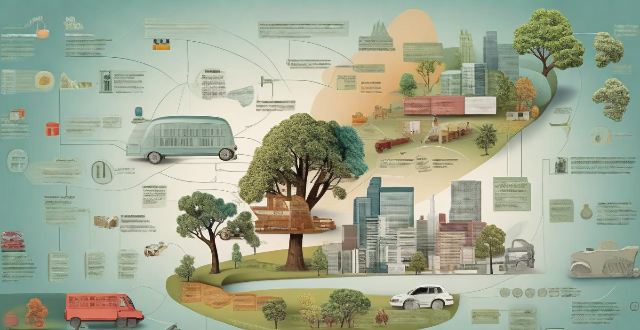
What is an economic stimulus plan ?
An economic stimulus plan is a government policy aimed at boosting a country's economy during times of slow growth or recession. The primary goal of such plans is to increase consumer spending, encourage business investments, and create jobs, thereby stimulating economic activity and promoting overall growth. Key features of an economic stimulus plan include tax cuts and rebates, government spending on infrastructure projects, monetary policy adjustments, direct assistance to businesses and individuals, and incentives for investment. Benefits of an economic stimulus plan include increased economic growth, job creation, long-term gains, and reduced poverty rates. However, potential downsides of an economic stimulus plan include national debt, inflation risks, crowding out effect, and short-term vs long-term effects. In conclusion, an economic stimulus plan is a multifaceted approach employed by governments to revive flagging economies. While these plans can have significant positive impacts on growth, employment, and overall well-being, they must be carefully designed and implemented to minimize potential drawbacks such as increased national debt and inflation risks.

How can governments fund economic stimulus plans effectively ?
Governments can fund economic stimulus plans through increased government spending, tax cuts, issuing bonds, monetary policy measures, privatizing assets, international aid and loans, and budget reallocation.

How does government budgeting differ from corporate budgeting ?
Government budgeting and corporate budgeting differ in purpose, constraints, methodologies, and time horizons. Government budgeting aims to allocate resources for public services and maintain economic stability, while corporate budgeting focuses on profit maximization and risk management. Government budgets require legislative approval and face public scrutiny, while corporate budgets are influenced by market forces and shareholder pressure. Methodologies used in government budgeting include zero-based budgeting and performance budgeting, while corporations use static budgeting and activity-based budgeting. Government budgeting often has a multi-year perspective, while corporate budgeting typically follows an annual cycle.

What are the benefits of implementing an economic stimulus plan ?
An economic stimulus plan is a set of policies designed to boost a country's economy during times of slow growth or recession. These plans are typically implemented by governments and can have a range of benefits, including increased economic activity, improved employment rates, stimulated investment, reduced inflation risk, and improved public services. By taking steps to boost the economy during times of slow growth or recession, governments can help to create a more stable and prosperous future for all citizens.

What are the potential drawbacks or risks associated with economic stimulus plans ?
Economic stimulus plans can boost a country's economy during slow growth or recession but have potential drawbacks like increased government debt, inflationary pressures, crowding out private investment, and unintended consequences. Policymakers must consider these risks before implementation and take steps to mitigate them, such as targeting stimulus measures towards areas with the greatest need and ensuring that any increases in government spending are offset by future reductions in other areas.

What impact does consumer confidence have on economic recovery ?
Consumer confidence is a key driver of economic recovery. It stimulates growth, boosts employment rates, reduces unemployment, and increases government revenue. To improve consumer confidence, governments should encourage stable economic policies, provide financial education, promote transparency, and invest in infrastructure.

What is the role of government in setting building energy efficiency standards ?
The role of government in setting building energy efficiency standards is crucial for promoting sustainable development, reducing energy costs, improving public health, driving innovation and technology advancements, and creating job opportunities. By working together with industry stakeholders and the public, governments can help shape a more sustainable future for all.

How do government policies and regulations impact climate change mitigation efforts ?
Government policies and regulations are crucial in guiding societies towards sustainable practices that mitigate climate change. These frameworks influence climate change mitigation efforts through legislation, financial incentives, public awareness campaigns, international agreements, regulatory measures, economic instruments, research and development, public engagement and education, and international collaboration. By implementing these strategies, governments can drive meaningful change and secure a sustainable future for all.

In what circumstances is an economic stimulus plan most necessary ?
An economic stimulus plan is most necessary during times of recession, slow economic growth, high unemployment rates, or financial crisis. These plans can help to boost economic activity, create jobs, and stabilize the financial system by implementing policies such as increasing government spending, reducing taxes, providing subsidies to businesses, encouraging investment in new technologies, expanding access to credit, investing in infrastructure projects, offering tax incentives for hiring new employees, and implementing regulatory reforms.

What are the economic consequences of climate change ?
The article discusses the economic consequences of climate change, including its impact on agriculture, tourism, energy, and infrastructure. In agriculture, decreased crop yields, loss of biodiversity, and increased extreme weather events can lead to higher food prices and reduced agricultural income for farmers. In tourism, loss of natural attractions, changes in seasonality, and health risks can result in reduced tourism revenue for affected regions. In energy, increased demand for cooling systems, disruption of energy production facilities, and transition to renewable energy sources can create new economic opportunities but also require significant investment and adaptation. In infrastructure, damage to critical infrastructure like roads, bridges, and buildings can result in costly repairs and replacements for governments and private sector organizations. Addressing these challenges requires coordinated action by governments, businesses, and individuals to reduce greenhouse gas emissions and adapt to the changing climate.

What role does government play in promoting green technology ?
The government plays a crucial role in promoting green technology. This is because the government has the power to create policies and regulations that can encourage the adoption of sustainable practices and technologies. Here are some ways in which the government can promote green technology: 1. Funding and Incentives 2. Regulations and Standards 3. Public Awareness Campaigns 4. Collaboration with Industry
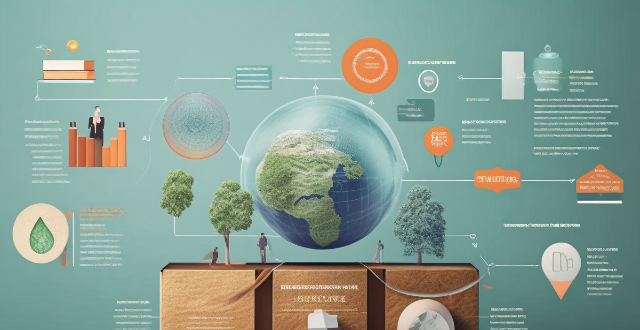
How can governments stimulate economic recovery without increasing inflation ?
Governments can stimulate economic recovery without increasing inflation by implementing a combination of fiscal policy measures, monetary policy tools, supply-side policies, and structural reforms. Fiscal policy measures include tax incentives for businesses and consumers, as well as targeted spending on infrastructure and education. Monetary policy tools involve adjusting interest rates and reducing reserve requirements to encourage borrowing and lending. Supply-side policies focus on deregulation and labor market flexibility to reduce costs and promote competition. Structural reforms aim to support education, innovation, and environmental sustainability. It is important for governments to monitor the effects of these policies and adjust them as needed to maintain price stability and economic health.

How do environmental subsidy policies impact economic growth ?
The text discusses the impact of environmental subsidy policies on economic growth, highlighting both positive and negative effects. Positive impacts include stimulating innovation and technology development, enhancing energy efficiency, creating job opportunities, and improving public health. Negative impacts encompass distorting market incentives, increasing government expenditures, potential for carbon lock-in, and global trade implications. It concludes that while environmental subsidies have the potential to foster economic growth, they must be carefully designed to avoid adverse effects and contribute positively to sustainable economic development.
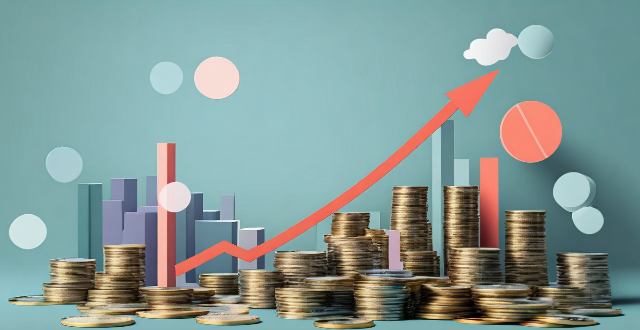
Can economic indicators accurately predict a recession ?
Economic indicators, such as GDP growth rate, employment rate, inflation rate, interest rates, consumer sentiment, and manufacturing/service sector activity, are used to gauge the health of an economy. While these indicators provide valuable insights, their ability to predict a recession is not absolute due to limitations like lagging indicators, false signals, external factors, and policy responses. A combination of indicators and a probabilistic approach can improve accuracy in predicting economic downturns.

How does economic recovery affect different industries differently ?
Economic recovery affects industries differently based on their reliance on consumer spending, investment, government policies, and global markets. Consumer discretionary sectors like retail and hospitality are highly sensitive to economic fluctuations but can rebound quickly with increased consumer confidence. The technology sector often remains resilient during downturns, with continued growth in segments like software and online services. Manufacturing may face challenges due to supply chain disruptions but can rapidly expand with demand recovery. Financial services benefit from improved credit conditions and increased lending activities. Healthcare is generally less affected by economic cycles and can grow with aging populations. Energy sector recovery depends on global demand and policy shifts towards renewable energy. Understanding these differential impacts is crucial for investors, policymakers, and businesses to navigate the changing landscape effectively.

How do economists analyze and interpret economic indicators ?
Economists use various methods to analyze and interpret economic indicators, including data collection, statistical analysis, modeling, forecasting, and policy recommendations. They collect data from government agencies, private companies, and international organizations, and use statistical techniques to estimate missing data points. Once the data is collected, economists use statistical tools to analyze it, looking for trends, patterns, and relationships between different variables. They also create models to help them understand complex economic systems, using mathematical equations to represent the relationships between different variables and test hypotheses about how these variables interact. Based on their analysis and modeling, economists make predictions about future economic conditions, using historical data and current trends to forecast future growth rates, inflation rates, unemployment rates, etc. Finally, based on their analysis and forecasting, economists make policy recommendations to governments and businesses, which can include tax policies, monetary policies, trade policies, etc.

What is the outlook for the European Union's economic recovery ?
The economic recovery of the European Union (EU) depends on political stability, global economic conditions, and domestic policies. Unity among member states and effective governance are crucial for managing crises and implementing growth-promoting policies. Global trade dynamics and supply chain disruptions also play a significant role. Domestically, fiscal stimulus, structural reforms, and a balanced green transition are key. The outlook is optimistic but uncertain, with many influencing factors.

What policies have been successful in promoting economic recovery in the past ?
Economic recovery refers to the process of restoring a nation's economy to its pre-recession level or even improving it. Various policies have been implemented in the past to promote economic recovery, and some of them have proven successful. Fiscal stimulus involves increasing government spending or reducing taxes to boost economic activity. Monetary policy involves adjusting interest rates and money supply to influence inflation, unemployment, and economic growth. Structural reforms involve changing the way an economy operates to improve its efficiency and competitiveness. In conclusion, various policies have been successful in promoting economic recovery in the past.
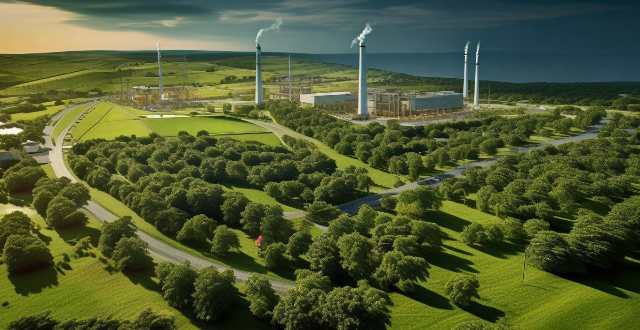
How can we balance economic growth with environmental sustainability ?
Balancing economic growth with environmental sustainability requires a multifaceted approach that includes promoting green infrastructure and renewable energy, encouraging sustainable business practices, fostering innovation and technology development, educating and engaging stakeholders, and implementing policies and regulations. By taking these steps, we can create a more sustainable future where economic prosperity coexists with environmental well-being. Achieving this balance will require ongoing effort from all sectors of society, including governments, businesses, communities, and individuals alike.

Are green jobs accessible to people from all socio-economic backgrounds ?
The accessibility of green jobs to individuals from diverse socio-economic backgrounds is a complex issue that involves several factors, including education and training, job market dynamics, socio-economic barriers, and policy initiatives. To ensure that green jobs are accessible to people from all socio-economic backgrounds, concerted efforts from educational institutions, employers, and governments are needed to remove barriers and promote inclusivity.

How can circular economy policies contribute to economic growth ?
Circular economy policies can drive economic growth through innovation, job creation, and sustainable business models. By promoting resource efficiency, new markets, and sustainable supply chains, these policies reduce waste management costs and enhance corporate image. Government incentives further support businesses in adopting circular practices, mitigating risks from resource shortages and commodity volatility. Ultimately, the circular economy contributes to long-term economic stability by fostering renewable resource use and reducing waste.

What role does government regulation play in improving air quality ?
Government regulation plays a crucial role in improving air quality by implementing policies and standards that reduce emissions from various sources. These regulations are designed to protect public health, preserve the environment, and promote sustainable development. The different ways government regulation contributes to improving air quality include setting emission standards, enforcing compliance with regulations, promoting clean energy sources, supporting research and development, and educating the public. By engaging with citizens and fostering a culture of environmental responsibility, governments can encourage behavior change that leads to improved air quality.

What are the key economic indicators to watch for global growth ?
Monitoring key economic indicators such as GDP, inflation rate, unemployment rate, interest rates, trade balance, current account balance, manufacturing and service sector indexes, stock market performance, and consumer confidence indices is crucial for policymakers, investors, and businesses to understand global economic growth. These indicators provide insights into the overall health of an economy, guide decision-making processes, and help predict future trends.
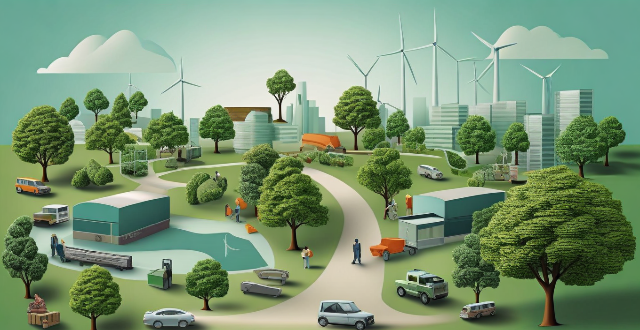
What are the economic implications of enacting stringent climate change legislation ?
The article discusses the economic implications of stringent climate change legislation, which include job creation in renewable energy and green infrastructure sectors, potential increases in energy and food prices, new business opportunities in innovation and carbon trading, and investment in clean technology leading to economic growth. However, there are also short-term transition costs and job displacement issues. Despite these challenges, the long-term benefits such as improved air quality and increased resilience against natural disasters make the implementation of such legislation beneficial for future generations.

What are the economic implications of implementing a carbon tax ?
Implementing a carbon tax can have significant economic implications, including increased costs for businesses and consumers, potential revenue generation for governments, and both positive and negative impacts on economic growth. However, it could also encourage businesses to become more energy-efficient and innovative, potentially leading to new opportunities in clean energy and other sectors. Consumers may face higher prices but could benefit from a cleaner environment due to reduced carbon emissions.

Can carbon offsetting be used as a substitute for government action on climate change ?
The article discusses the concept of carbon offsetting and its potential as a substitute for government action on climate change. Carbon offsetting involves investing in projects that reduce or remove greenhouse gases from the atmosphere, such as renewable energy sources and reforestation. While it has advantages like individual responsibility and immediate impact, it also has limitations like not being a complete solution and lack of regulation. Government action is crucial in addressing climate change through regulation, infrastructure, and education. The conclusion states that carbon offsetting can be a useful tool, but it cannot replace government action.

How do government policies influence the growth of electric vehicle infrastructure ?
Government policies play a crucial role in shaping the growth of electric vehicle (EV) infrastructure. These policies can be broadly categorized into regulatory, financial, and informational measures. Regulatory policies set standards and mandates that must be followed by businesses and consumers, while financial incentives and disincentives are powerful tools used by governments to encourage the adoption and expansion of EV infrastructure. Information plays a vital role in shaping consumer behavior and market dynamics, with governments leveraging this by providing relevant data and promoting awareness. In conclusion, government policies across regulatory, financial, and informational domains have a profound impact on the growth of electric vehicle infrastructure.
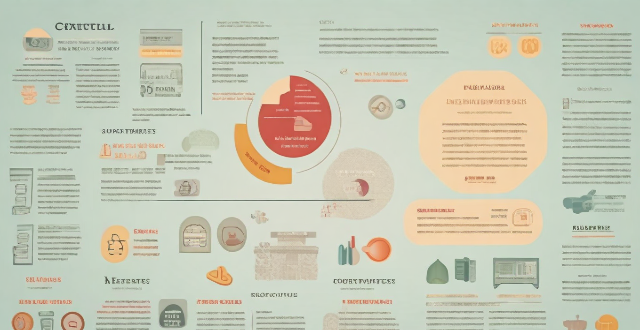
What is the GDP and why is it considered a crucial economic indicator ?
GDP is a crucial economic indicator that measures the market value of all final goods and services produced by a country in a specific time period. It serves as a measure of economic activity, national wealth, and a benchmark for international comparisons. GDP also impacts financial markets, reflects the standard of living, influences global perceptions, and drives employment opportunities. However, it should be considered in conjunction with other indicators for a more holistic understanding of an economy's health.

What are the potential economic impacts of implementing the Paris Climate Agreement ?
Implementing the Paris Climate Agreement could have various economic impacts, including stimulating innovation and job creation in renewable energy sectors, reducing fossil fuel dependency, improving public health, and promoting green growth. However, there may also be short-term costs of transition, impacts on traditional industries, adjustment for businesses, and global economic imbalances. To mitigate negative impacts, governments and organizations can provide support for workers transitioning to new industries, implement carbon pricing mechanisms, engage in public-private partnerships, and cooperate internationally. Overall, the long-term benefits of avoiding catastrophic climate change outweigh the short-term economic costs, making the agreement a crucial step toward a sustainable future.